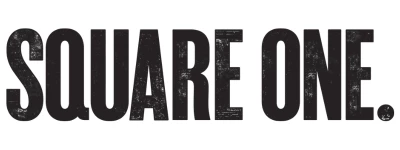Partner Article
How to make more business?
Many students have a definite idea of what they will do for a living and consequently, they go into vocational high school—or, in addition to attending regular classes at a conventional high school, they take part in a work study program. Once they have graduated, they are faced with the question of where they can go after that. That is what this article will be about.
Where do people actually go after graduating vocational high school?
The educational paths that people take after vocational high school vary according to country, demographics, time period and many other factors. In 1970, for instance, only 9.6 percent of all South Korean vocational school graduates pursued a path of higher education, according to statistics gathered by the country’s Ministry of Education. Over the decades this figure gradually increased until it came to 29.2 percent in 1997. For the same years, the percentage of that demographic who eventually found employment amounted to 50.2 and 64.8 respectively. The former percentages were considerably lower, and the latter ones considerably higher, than the corresponding ones for South Koreans who graduated from a general high school. One Thai vocational school graduate attended Pho Chang College of Arts in Bangkok!
But what are the college options?
In theory, it is true, a student who has received a vocational high school diploma can attend any university or college anywhere. However, many institutions of higher learning are less likely to accept such students to their classes. It is extremely unlikely, for instance, that vocational education could get you into a liberal arts college, and even less so that you could go into medical or dental school! You would probably have a better chance and getting into a community or vocational college and advance yourself even further in the subjects that had taken up the bulk of your studies during your high school years. In preparation for such an education you will want to keep your high school grades up to par because most colleges, of whatever type, will not accept students whose grades are below a certain average.Some people even think that there is no need to go to college after leaving vocational high school at all—you already have all the education that you will ever need for your chosen career path. They say that the very purpose of that kind of high school is to prepare the graduate for a career straight out of high school. There is one case of a person who began college late, a full year after vocational high school. During that period he worked at a well-paying full-time job. He did manage to pay his expenses but he found that he could not get any further without higher education of some sort. He was reluctant to leave his current job, but once he graduated from college he found himself with a career that paid twice as much as his earlier one had. Nor did he stop there—he earned a number of post-graduate degrees and soon began earning an even better salary! This person has concluded that if you are thinking of attending a junior college, then it would be a better idea to attend regular high school.
Taking college classes in high school
You may even be able to take community college courses while you are still in high school. Be sure that you have enough time for everything in your schedule before deciding on this form of education. Such an arrangement can allow you to graduate and embark on your career path sooner than you otherwise would.In the final analysis, while vocational high school will not necessarily bar you from getting a higher education, it will certainly limit the range of your choices considerably. If you are prepared to live out your life working blue collar jobs, struggling just to get by, then go ahead. But the broader your education, the broader your post-graduate choices will be.
Joe Johnson is an avid blogger who contributes to a number of publications on a range of topics from researching, study habits, and career development. Click here to learn more about specific career development and mba programs.
This was posted in Bdaily's Members' News section by Amey Bester .





 Staying relevant without losing equity
Staying relevant without losing equity
 Businesses - play your part in festive success!
Businesses - play your part in festive success!
 Building for change after a year of highs and lows
Building for change after a year of highs and lows
 Give us certainty to accelerate electric drive
Give us certainty to accelerate electric drive
 We must create a new pathway to growth
We must create a new pathway to growth
 We must act now to provide a home for all
We must act now to provide a home for all
 We need a longer-term focus on public money
We need a longer-term focus on public money
 A collaborative approach to skills development
A collaborative approach to skills development
 A budget of shocks and surprises
A budget of shocks and surprises
 University isn’t for everyone
University isn’t for everyone
 A budget of ups and downs
A budget of ups and downs
 Government budget 'must deliver firm foundations'
Government budget 'must deliver firm foundations'